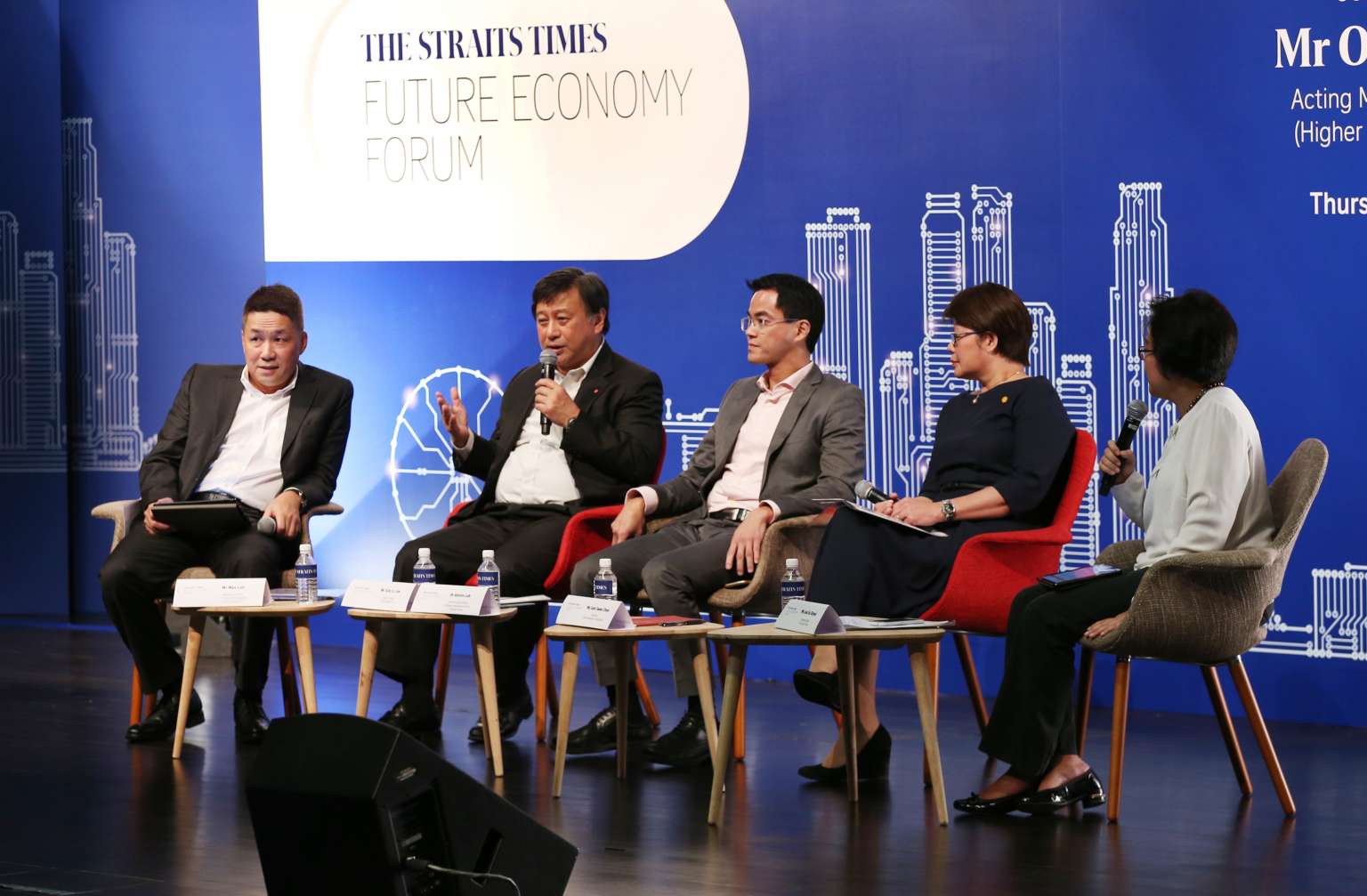Visions of the future at Straits Times Future Economy Forum: Digital banks, healthcare on your doorstep
Sign up now: Get ST's newsletters delivered to your inbox

(From left) Mr Max Loh, Sim S. Lim, Dr Kelvin Loh, Ms Goh Swee Chen and Ms Lee Su Shyan at the Straits Times Future Economy Forum on Oct 20, 2016.
ST PHOTO: LAU FOOK KONG
Follow topic:
SINGAPORE - The loss of jobs due to technological disruption could shake the social compact, warned one corporate leader at a panel on the future economy on Thursday (Oct 20).
Said Mr Max Loh, Asean and Singapore managing partner of professional services company EY: "There will be a growing disparity between those robbed of stability and those who thrive on disruption."
He was part of a panel at the Straits Times Future Economy Forum, which sought to paint scenarios of Singapore's socio-economic landscape 20 years down the road.
The forum took place at the Singapore University of Technology and Design with about 450 guests, including students from institutes of higher learning.
Mr Loh said that more and more jobs will be "unbundled", just as the consumption of music CDs has today been broken up into .mp3 files.
A massive collaboration between workers, businesses and the Government is needed to change mindsets, he said. "Instead of fighting digital disruption, we have to adapt for co-existence."
It is not all doom and gloom, however. Mr Loh pointed out there were some bright spots, such as a maturing economy of freelancers and micro-entrepreneurs, as well as potentially even more leisure time, as technology increases productivity.
His fellow panellist Dr Kelvin Loh, chief executive of healthcare group Parkway Pantai Singapore, said technology could usher in a new era of "hospitals without walls".
Instead of placing the onus on sick people to make appointments and visit hospitals in person, he said doctors would be able to assess them remotely and send electronic prescriptions to pharmacies, which would then have the medicines delivered to the patient's doorstep.
New algorithms and genetic testing could make healthcare predictive rather than reactive, he added. "You will find the disease and do something about it before the disease finds you."
Mr Sim S. Lim, country head of bank DBS Singapore, described an experimental digital bank in India where customers correspond with artificial intelligence instead of humans. "We hope to bring it to Singapore," he added.
He called for schools to inculcate a culture of risktaking. "We have a culture where the government tells us how to do, what to do.
"But banking will change. Financial technology is giving us a run for our money. If we don't innovate, we will die."
Singaporeans too have to play a part in adjusting to the tough times such disruption brings, said Ms Goh Swee Chen, Singapore chairman of oil giant Shell.
"Do we point at the government and say, find us a way? I disagree with this way forward. We need to start looking after ourselves better and drop the managed economy mindset that has compromised so much of our resilience.
She added: "We must also be willing to redefine the measure of what a successful life means - more pay, more power, a bigger car and a larger house.
"In the future, we need to create an environment where success is not defined by size. To make our future count, we must step up and redefine what makes life worthwhile."
Thursday's forum was the culmination of a series of closed-door roundtables hosted by senior ST editors earlier this year on seven areas of the economy, such as banking, energy and manufacturing.
Both the roundtables and Thursday's forum are sponsored by Shell, DBS, Parkway Pantai and EY.

